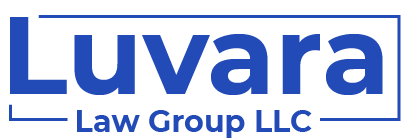Protecting Assets from Lawsuits
Protecting Assets from lawsuits involves legal tools and financial plans developed to shield from lawsuits. After analyzing a list of assets that need protection, various legal instruments used separately or together, may be used.
1. Form or Use a Limited Liability Company (LLC)
The first Asset protection strategy is to use limited liability companies. LLC statutes include provisions that keep a creditor from taking the company or the assets inside. Certainly, the contribution in to the entity to establish the LLC could be from prior-owned assets; whether liquid assets, tangibles, or intangible assets such as intellectual property (patents, trademarks, etc.). In order to limit liability, these assets are generally only subject to liability for the actions associated with the LLC. Generally speaking, so long as that LLC does not act fraudulently, assets cannot be reached by the actions of the owners who may have contributed the assets in the first place. Of course, not the assets belong to the “artificial person”; the Limited Liability Company (LLC).
2. Asset Protection Trusts
This is considered the most powerful tool to protect money from lawsuits. The best asset protection trusts are formed offshore. How do they work? Local courts do not have jurisdiction over foreign trustees. It ties the hands of the courts and the opponent’s attorney. The offshore trust is one of the few asset protection strategies that work after a lawsuit is filed. This strategy works best for liquid assets.
3. Own Nothing Personally
There are legal tools that keep creditors for seizing what is yours. When you get sued personally, most assets in your name are vulnerable. We are not saying not to own anything. We are saying do not hold non-exempt assets in your own name. Why not own it in a title holding trust to keep your name out of the public records? Own or might own rental property? Why not hold it in a land trust for privacy of ownership? If you have a sizable savings / investment account? Hold it in your own name? If so, to the opposing attorney getting at your assets is like shooting geese in a pond. When you hold it in a proper asset protection trust, you have access but your opponent does not. Moreover, when you pass away, your trust names your heirs as trust beneficiaries.
4. Use Separate Legal Tools
When you have extensive real estate holdings you should not own investment real estate in your own name. When someone sues you, you could potentially lose all of it. Holding real estate in an LLC is a good idea. Further, the LLC could be an asset with a trust holding; giving various levels of protection. In particular, if there is a tragic accident that surpasses your insurance coverage you have a special protection against your personal liability. If your holdings are many properties, then you may want to segregate assets in multiple LLC entities. Thus, a lawsuit against one of your rental properties may be prevented from causing a domino effect into losing all of your real estate holdings
5. Act Like a Whale: Stay Under the Surface
Flashing your cash and you might as well wear a big neon “Sue Me” sign around your neck. It’s much better to be rich than to look rich. It may feel good to have your neighbors know you are doing well. But ostentatious displays of wealth breed more jealousy than admiration. Remember Moby dick? The Whale does not get harpooned unless it surfaces. Stay under the water. Stay under the radar.
